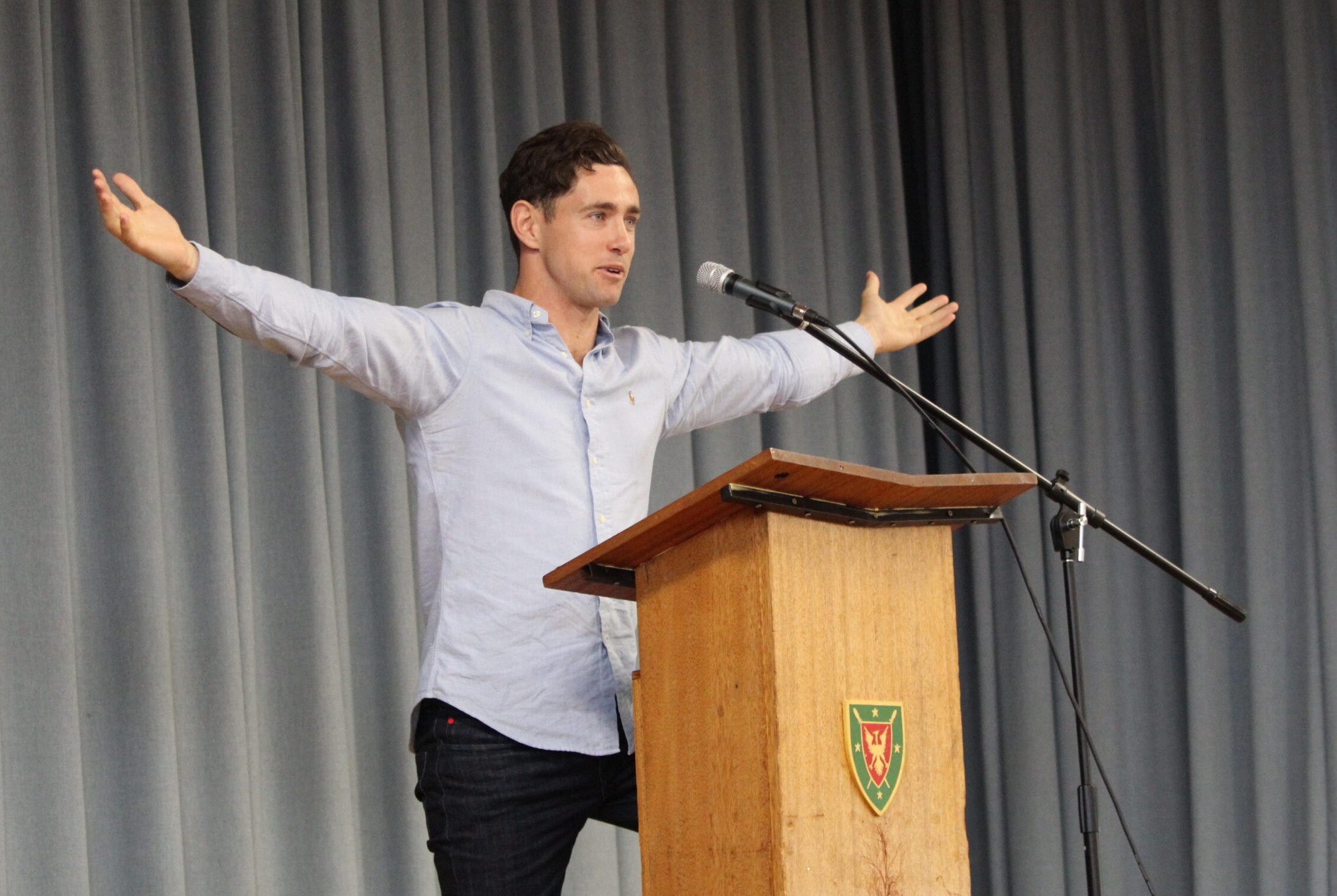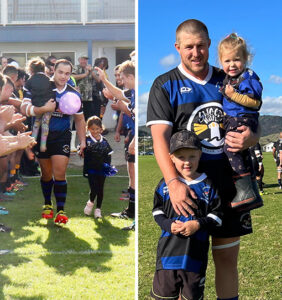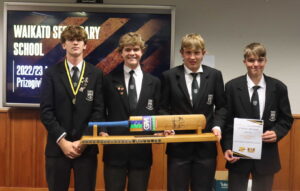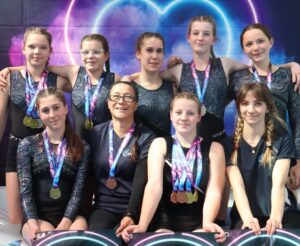Two-time paralympic gold medalist Liam Malone gave a motivational wellbeing talk at Paeroa College on May 16 to inspire its students and staff to achieve their goals.
The retired New Zealand para athlete, who was nicknamed the bladerunner in his prime, told the college he faced many challenges growing up as a double amputee en route to the world stage.

He said sports weren’t enjoyable due to his disability and he was unmotivated in school.
“When I was 16, I was living in a small town in New Zealand, and I had no idea what I was going to do with my life. I was getting into trouble, and most people thought I didn’t have a huge future ahead of me,” he told the crowd.
“I’m sure there’s some of you who are in certain scenarios or positions for whatever reason and you have had people telling you that the world is against your limit.
“I would be very careful about buying into what those people say regardless of whether or not the world is against you, and sometimes it may be. Just go against it anyway and do what you want to do – it never helps to cave into the negative.”
Mr Malone said after leaving school, he had stints as a fruit picker and forklift driver before pursuing a business degree at the University of Canterbury.
He said he developed a binge drinking habit during that time and made “pretty average” decisions.
“I didn’t feel like I had any dreams or anything to aspire to, so I decided I would turn that all around,” he said.
Mr Malone said one of his friends suggested he compete at the Paralympics, and after raising $50,000 for running blades and moving to Wellington for better training facilities, the media questioned him after his heavy world championship loss nine months before the Paralympics.
“In the next nine months, I built around improving on the blades and improving my body and I was able to drop another two seconds. That made me the fastest blade runner on earth and got me to the Paralympics – with the world’s worst haircut,” he said.
“What I did learn from going to the Paralympics was that it’s very difficult to forecast your own capabilities. It’s easy to try and do things for about a month and feel like you’re not making progress and then give up and not realise your potential.
“So what I would encourage all of you to do, regardless of what that goal is, is stick at something for an extended period of time and just do that thing over and over.”
Mr Malone also shared advice for students pursuing tertiary study.
“One of the most important decisions that you’re going to have to make is what area of life you decide to compete in, and one of the things I would recommend to all of you is to move cities, go somewhere that’s filled with optimism,” he said.
“The reason why the paralympics made so much sense to me while I was at university was because there aren’t that many people with no legs who make it to the paralympics – most of them get bogged down in life and they’re never willing to take that next step.
“So choosing the right things to compete in throughout life is going to be extremely important.”




